Technology firms rush to tap into smart city development
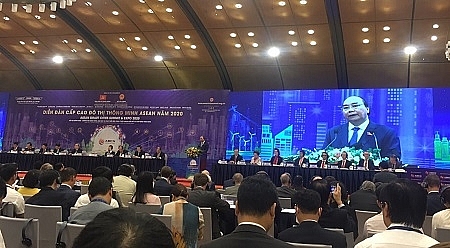 |
| Prime Minister Nguyen Xuan Phuc made a speech at High Level Forum of the ASEAN Smart Cities Summit and Expo 2020 |
At the ASEAN Smart Cities Summit and Expo 2020, technology companies promoted their products and solutions for intelligent transportation in line with the new development orientation towards digital transformation, with Vietnam's leading technology group FPT, and Taiwan’s Advantech – among the world’s technology leaders – among the most prominent names.
Le Quang Vinh, Industrial Infrastructure Sales manager at Advantech, said that technology application is developing strongly across the globe while Vietnam’s transport sector is still in the early stage.
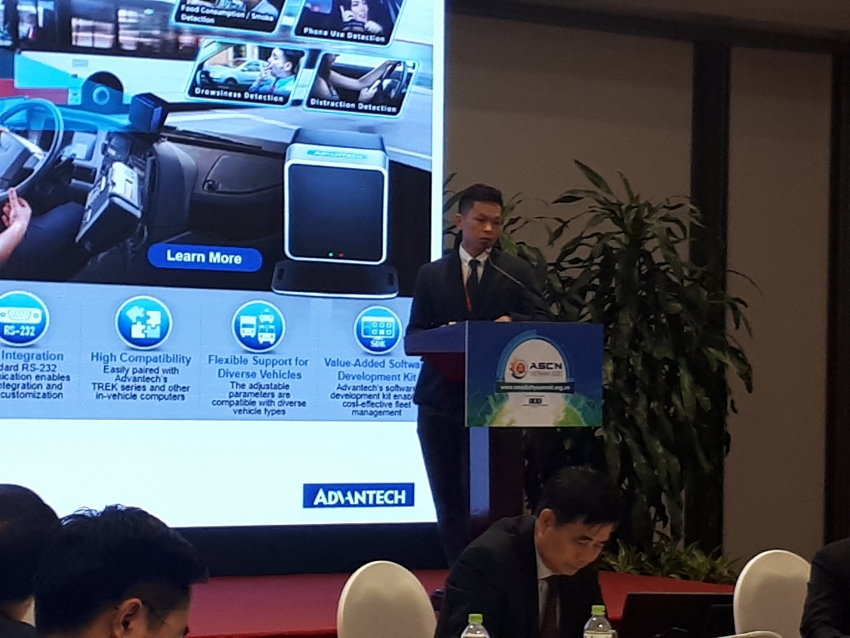 |
| Le Quang Vinh, Industrial Infrastructure Sales Manager at Advantech |
“We see huge potential there, and are working on some new products and solutions and will deploy them in Vietnam in the coming time,” Vinh told VIR. “We work with technology partners like FPT, CMC, and others to deploy them.”
Advantech is targeting to deploy advanced public transportation services (APTS) like Bus OBU, Bus Dispatching, Government Auditing, Intelligent Stops, Web Query, and Emergency Centre in the country.
Posting a revenue of $1.76 billion in 2019 and market cap of $7.4 billion (September 24, 2020), and ranking the ninth among the top industrial Internet of Things (IoT) companies worldwide in 2019, Advantech is now present in 27 countries with three manufacturing sites and 14 service centres.
Like Advantech, China-based Hikvision is looking to boost presence in the local transport sector. It now has offices in Hanoi and Ho Chi Minh City.
Hikvision is the leading player in the video surveillance market and one of the world’s leading suppliers of video surveillance products and solutions, providing IoT and big data solutions. Its global revenue in 2019 hit $8.26 billion.
Many other multinational corporations like Siemens, ABB, Ericsson, Volvo Buses, Roxtec, and Axis Communications have also been seeking new opportunities in Vietnamese cities. They have recently participated in forums in Hanoi, Ho Chi Minh City, and Danang to seek business opportunities in smart transport projects.
Awake of the huge potential, domestic technology firms, including Vietnam's top four network providers – FPT, VNPT, Viettel, and MobiFone – and others are also joining the race by increasing spending on the development of new products and services.
Nguyen Xuan Viet, CTO of FPT Information System (FPT IS), said that FPT has been providing technology solutions for transport, including railway, road, and aviation.
For instance, this company has recently cooperated with the Ho Chi Minh City Department of Transport to formally introduce the "MyTrans – Let’s bus" application on both the iOS and Android to help bus riders prepare for travelling around the city.
FPT IS is working with Bosch Vietnam on smart transportation development and vision to 2030 in Vietnam, Cambodia, and Myanmar, following an agreement signed in late 2019. Earlier, FPT IS won Hanoi’s approval to develop an intelligent transport system (ITS) to improve traffic flows in the city.
“Rapid urbanisation has been putting tremendous pressure on urban transport, urging us to develop smart solutions. The market is in the early stage of development and is expected to accelerate as it matures,” Viet said.
Similarly, VNPT is seeking for opportunities in cities and provinces following past successes. In 2019, the corporation entered into an agreement with Danang Department of Transport to build an intelligent transport system (ITS) in the city, following a similar project for Cao Bang province in 2015-2020.
Smart transportation is an inevitable trend and transforming transport is fundamental to sustainable development. According to GIZ, Germany's main agency for international cooperation and development, transport is responsible for 18 per cent of total emissions in Vietnam.
Meanwhile, Vietnam’s air quality is decreasing, with 60,000 premature deaths a year linked to air pollution by the World Health Organization. Air pollution costs the Vietnamese economy about $10 billion every year, equivalent to 5-7 per cent of its GDP, according to the Japan International Cooperation Agency.
“E-mobility is one piece in the decarbonisation puzzle,” said a GIZ project director for the NDC Transport Initiative for Asia (NDC-TIA). “Improvements in vehicle fuel economy have the greatest impact, reducing 5.0 million tonnes of CO2 in 2030. Mainstreaming the electric vehicle market has the second highest reductions with 3.5 million tonnes of CO2 in 2030.”
To curtail these emissions, Vietnam’s transport sector is focusing on boosting foreign investment attraction in the monitoring and management of traffic (especially smart transportation) in urban areas.
Deputy Minister of Transport Nguyen Ngoc Dong, said, “There is still a lot to gain from foreign investment in transport projects, especially now that the Fourth Industrial Revolution is knocking on our doors. FDI is not only a significant source of capital for transport projects that are particularly capital-intensive, it is also a gateway to accessing technologies that Vietnam lacks – from construction and design technology to new intelligent applications in the management and monitoring of projects in operation.”
Under this orientation, cities and provinces in Vietnam have been heading to develop smart cities with smart transport systems as a vital part, raising businesses and investors' expectations of fresh opportunities.
For example, Hanoi is a prime example for the huge business potential. In the master plan on road transport vehicle management in 2017-2020, with vision to 2030, the development of the public transport system and technology applications for smart city development are listed among the main solutions. In addition to the two metro lines currently under construction, the city is preparing to develop four more.
What the stars mean:
★ Poor ★ ★ Promising ★★★ Good ★★★★ Very good ★★★★★ Exceptional
Related Contents
Latest News
More News
- State corporations poised to drive 2026 growth (February 03, 2026 | 13:58)
- Why high-tech talent will define Vietnam’s growth (February 02, 2026 | 10:47)
- FMCG resilience amid varying storms (February 02, 2026 | 10:00)
- Customs reforms strengthen business confidence, support trade growth (February 01, 2026 | 08:20)
- Vietnam and US to launch sixth trade negotiation round (January 30, 2026 | 15:19)
- Digital publishing emerges as key growth driver in Vietnam (January 30, 2026 | 10:59)
- EVN signs key contract for Tri An hydropower expansion (January 30, 2026 | 10:57)
- Vietnam to lead trade growth in ASEAN (January 29, 2026 | 15:08)
- Carlsberg Vietnam delivers Lunar New Year support in central region (January 28, 2026 | 17:19)
- TikTok penalised $35,000 in Vietnam for consumer protection violations (January 28, 2026 | 17:15)

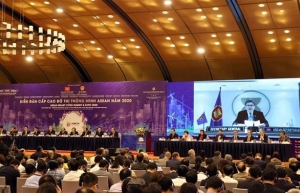
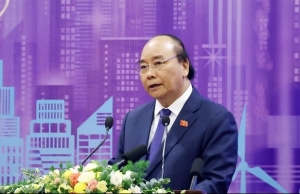
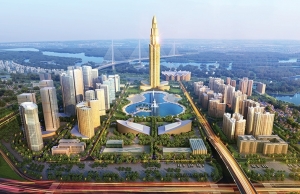
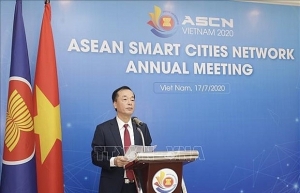
 Tag:
Tag:
























 Mobile Version
Mobile Version